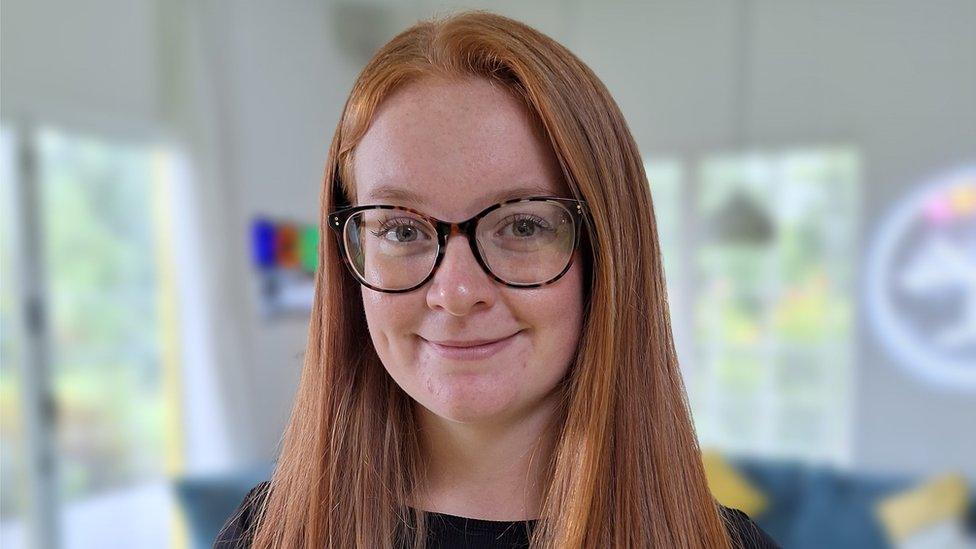Social inequalities created North-South care divide, report finds

The report looked at economic factors influencing the number of children in care
- Published
"Deeply-rooted social inequalities" have created a North-South divide in England in the rates of children entering care, researchers have said.
Analysis for the Child of the North All-Party Parliamentary Group found while the North had 28% of England's child population, it had more than 36% of the children in care.
It found one in 52 children in Blackpool and one in 63 in Hartlepool were in care, compared to one in 256 in Buckinghamshire and one in 278 in Hertfordshire.
The report by the University of Liverpool said the higher rates of children entering care were estimated to have cost the North at least £25bn more in the past four years.
The report said the findings, which showed an average of one in 140 children in care across England, highlighted “the damage caused by cuts to prevention and failure to address the very real problem of child poverty in the North”.
It said a rise in the number of children’s homes between 2020 and 2023 had “disproportionately affected” the north of England, as the area housed 1,176 children’s homes, compared to 1,704 in the rest of the country.
It said north-west England alone accounted for more than a quarter of children’s homes and close to a quarter of children’s home places.
'Early intervention'
“Decades of under-investment in the North have hollowed out preventative services, increased rates of children in care and undermined foster care provision, leaving local authorities at the mercy of the private residential care providers," it said.
Lead author Dr Davara Bennett said the findings showed “the damage caused by cuts to prevention and failure to address the very real problem of child poverty in the North”.
“Our report has exposed the deeply-rooted social inequalities reflected in, and exacerbated by, the child welfare system," she said.
“These need to be tackled head-on by policymakers.
"Local authorities are trapped in a cycle of ever-greater spend on children in care, at the expense of investment in effective support for families in need.
“The evidence shows the damage caused by cuts to prevention and failure to address the very real problem of child poverty in the North.”

The study found one in 52 children in Blackpool were in care
In light of the analysis, the parliamentary group's members and the report's authors have made a number of recommendations.
They include policies to reduce child poverty, such as scrapping the two-child limit and benefit cap, as well as more investment in prevention strategies such as targeting additional investment in the North.
The report also called for more support for older children and those leaving care as well as for more research to be done monitoring health, housing, education, and employment outcomes of children in care.
A Department for Education representative said every child deserved to live "in a safe and stable home and we are committed to helping children and families overcome multiple and complex needs at an early stage, so they can stay together and thrive".
“Early intervention is at the core of our ambitious children’s social care reforms – including a £45m investment in pilot areas across the UK to help us shape a future system where we provide families with the right support at the right time, delivered by the right people," they added.
“For those leaving care, we are investing £250m over three years to help them succeed – providing housing, access to education, employment and training.”
Listen to the best of BBC Radio Lancashire on Sounds and follow BBC Lancashire on Facebook, external, X, external and Instagram, external? You can also send story ideas to northwest.newsonline@bbc.co.uk, external
Related topics
- Published3 February 2022

- Published11 August 2022

- Published12 July 2023
